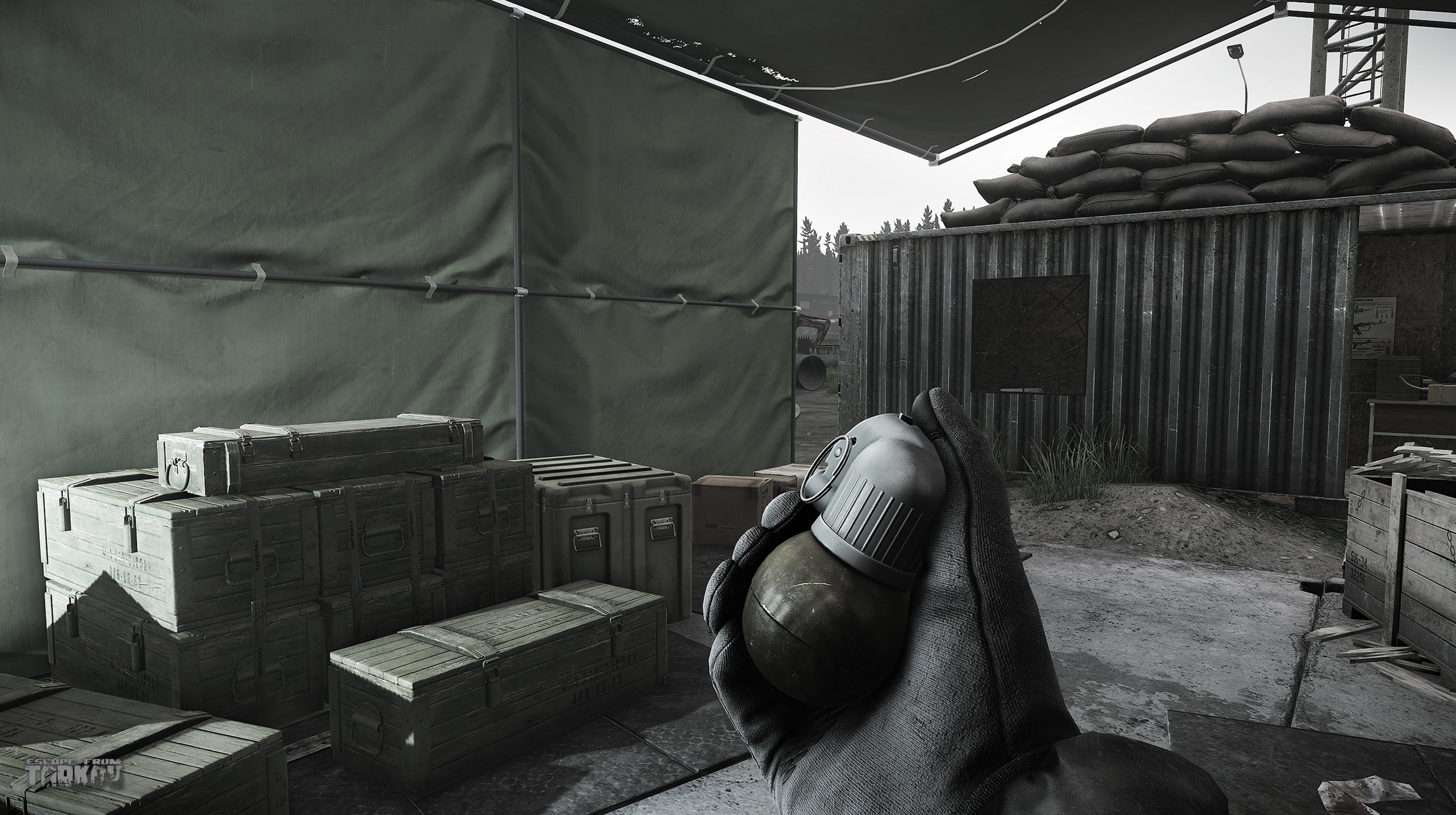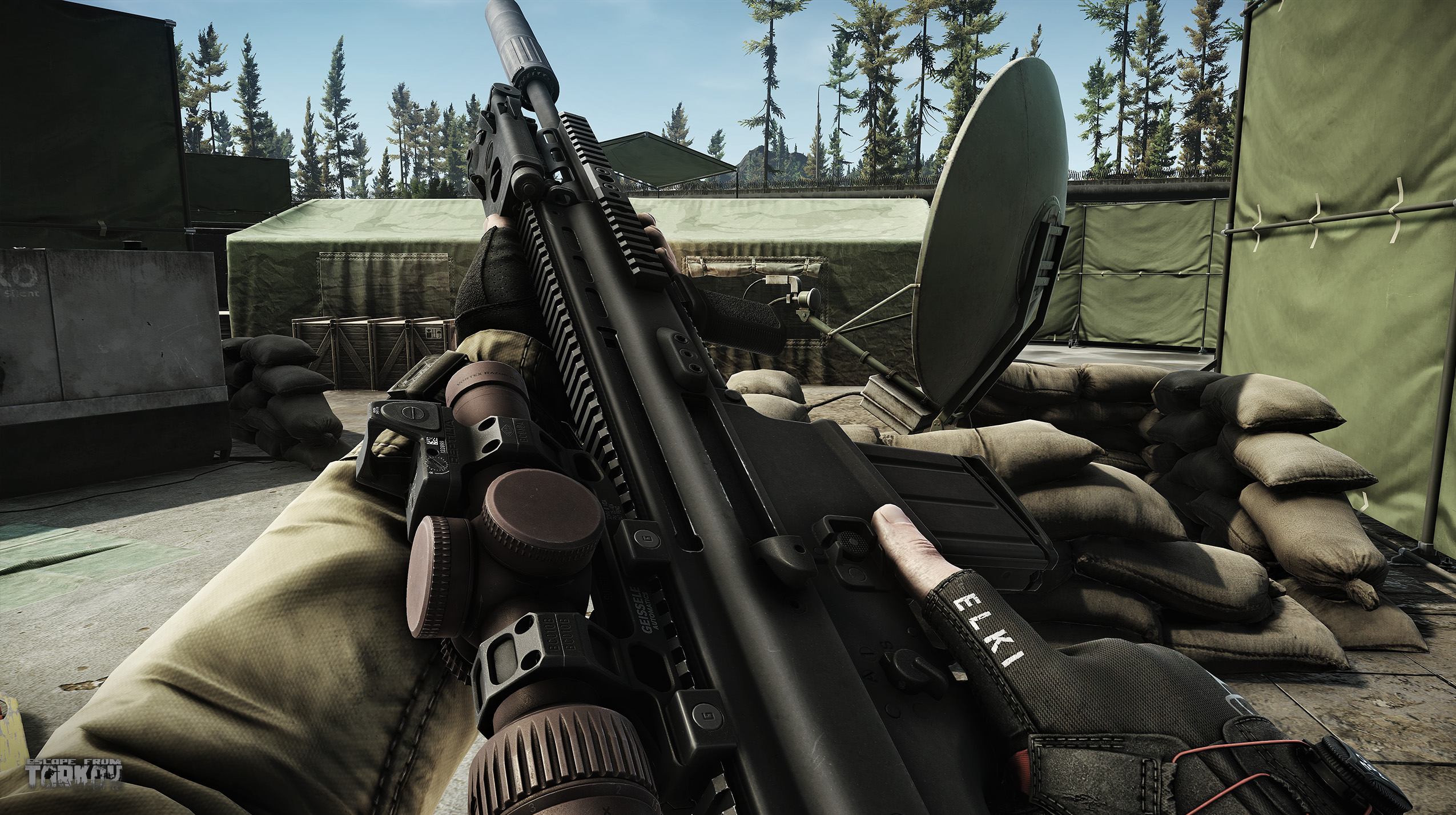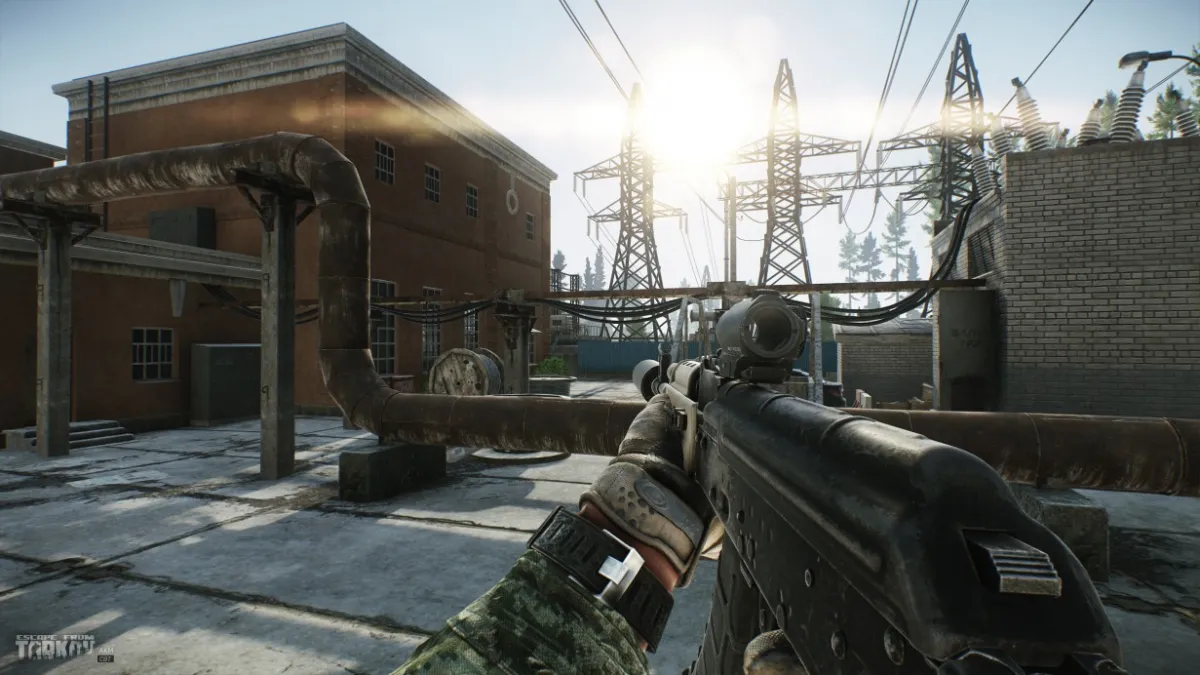Years ago, I heard it takes 100 hours of getting beat senseless in Street Fighter to even start getting good. That you needed to dedicate not only the time to be pummeled, but also time to learn from each pummeling so that one day you might pass on similar lessons to another new player. I’ve also heard similar things about Escape from Tarkov, which, coincidentally, I dove headfirst into four months ago.
Escape from Tarkov Is Complex to the Point of Absurdity
To say Tarkov is dense is to do a disservice to the word. You can break every weapon down into its component parts, and there are dozens of components, not just for each gun but for each part of the gun. That’s not taking the effects of ammunition into account. Then there’s the gear system, with minute breakdowns for armor, weight, inventory size, and nested containers to consider. And then there are the maps — complex, multilayered labyrinths you’ll spend hundreds of hours gaining just a passing familiarity with.
Which is where I am right now. A little over 250 hours into Escape from Tarkov, and I’m only just beginning to understand how the guns work, how to navigate the maps efficiently, and how to do more than just “shoot gun at bad guy before they shoot back.” And the wild thing is — I feel like the 100-hour rule applies differently to Tarkov. Rather than coming to an understanding of how to play the game in that time, it takes 100 hours to come to an understanding of one aspect of the game.
For instance, if you spend any time watching experienced players, you’ll notice them using stimulant injectors, which give temporary stat boosts that can turn the tide in a fight. It wasn’t until about 200 hours that I considered adding them to my gameplay. I wasn’t hesitant because they were hard to come by or because I didn’t see the advantages. Rather, I wasn’t using them because I wasn’t quite sure how or when is the best time.

The same is true for me of grenades, jump peeking, point fire, and dozens of other smaller mechanics that I don’t yet know how to properly implement. For the last 250 hours, I’ve had two main goals: learn maps and not die. And you’d be surprised how hard it is to do either of those things in the absence of the other.
Then if you ask a veteran of Escape from Tarkov what it takes to get better, the answer is liable to be “die a lot,” with several qualifications. That take reminds me of another game series with a decades-long learning curve and one that is, on its face, significantly simpler than Tarkov: Counter-Strike.
Not the Only One
CS has none of the more visible intricacies that Tarkov boasts. No food or weight meter, no guns that break down into literally hundreds of pieces. Hell, its maps are orders of magnitude smaller than those of Tarkov. Yet, like its more outwardly complicated competitor, Counter-Strike is a game of tremendous subtlety that demands years of concentrated and consistent play to be proficient at, let alone master.
Even Counter-Strike: Global Offensive, which is only now being phased out by Counter-Strike 2 after a decade, plays nothing like its release version at the highest levels. That’s due in part to Valve’s ability to adjust, update, or overhaul the game’s maps, but even maps like Dust II, which have remained relatively unchanged for 20+ years, see new strategies appearing every few months as new players dive in and figure out how they want to play it.
That doesn’t even begin to talk about the hundreds of hours it takes to master the feel of even one gun on one team, or heaven forbid you attempt to learn the AWP without first gaining a solid understanding of the rest of the game.

The Reward of Progress
With everything above going for them, why would anyone dedicate 10 hours to these punishing, unforgiving games, let alone a hundred or even several thousand? For me, it was a matter of progression. There are plenty of RPG-esque quest and experience mechanics to chase after, sure, but what keeps me hooked on Tarkov is that, even in a raid where nothing happens, where I don’t hear a sound for 45 minutes, I learn something.
The inverse is also true. I might make it only 60 seconds before getting my head blown off, but in that single minute of time — and the few after it I’ll spend hitting my head against my desk — I will gain some new insight I can use for the rest of my time with the game. More importantly, this new knowledge can be about a hundred different things: the map, how a gun works, how to move, whether to be aggressive or passive, and so on.
I’m a sucker for progression systems. It’s why Destiny 2 captures my attention every season, then dies off after a few weeks. I love having a carrot to chase. What sets Tarkov apart is that there are thousands and thousands of carrots, and I want all of them. The rub is that, to catch them, I need to fail almost constantly. And though some of those failures are out of my control, odds are if I find myself back in the lobby with nothing but a heavily wounded character to my name, I’ve done something stupid I can file away as “never do again.”
Unlike Destiny and games like it, however, the pursuit of loot is not my goal in Escape from Tarkov. It is instead the quest for knowledge and mastery and to surpass what I was yesterday. There’s probably no other game I’ve ever played that has that effect. I usually need something more tangible to go after. And while getting better equipment and leveling up is nice, the constant feeling that I have so much more mountain left to climb keeps me coming back, and I don’t see that stopping anytime soon.






Published: Jun 2, 2023 12:44 pm